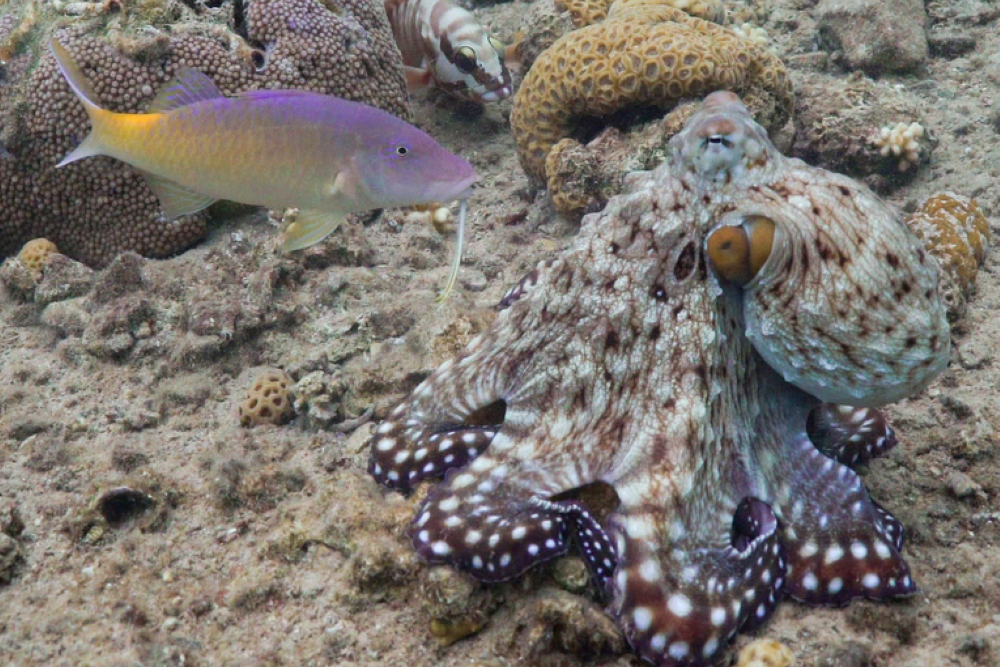Octopuses and fish recorded hunting together as a team to catch more prey
The new study reveals that when hunting prey together, some octopus and fish species appear to share leadership

Your support helps us to tell the story
From reproductive rights to climate change to Big Tech, The Independent is on the ground when the story is developing. Whether it's investigating the financials of Elon Musk's pro-Trump PAC or producing our latest documentary, 'The A Word', which shines a light on the American women fighting for reproductive rights, we know how important it is to parse out the facts from the messaging.
At such a critical moment in US history, we need reporters on the ground. Your donation allows us to keep sending journalists to speak to both sides of the story.
The Independent is trusted by Americans across the entire political spectrum. And unlike many other quality news outlets, we choose not to lock Americans out of our reporting and analysis with paywalls. We believe quality journalism should be available to everyone, paid for by those who can afford it.
Your support makes all the difference.Octopuses are usually considered to be solitary creatures, but new research suggests they might sometimes socialise with fish in order to share the responsibility of hunting.
The findings broaden our understanding of the shared social life of octopuses and fish, scientists say.
In the past, the animals have been seen to hunt together for shared prey such as molluscs and crustaceans.
The new study sheds more light on this, revealing that when hunting prey together, some octopus and fish species appear to share leadership.
These findings expand our current understanding of what leadership is and what sociality is
However, it is not always a harmonious group hunt, with the scientists observing aggression among group members, including fish displacing others by darting towards them, and octopuses punching some fish to the outer areas of the group.
After analysing data from 120 hours of dives, the scientists found that leadership is shared for different types of decisions.
For example, goatfish specialised in deciding where the hunting pack moves — while the octopus decided whether and when the move would be made.
The authors note that although other types of mixed-species hunting is known – such as badger–coyote, mixed birds, and moray eel–grouper groups – they appear to be less flexible in using social information to change strategy compared to octopus–fish hunting groups.
Writing in the Nature Ecology and Evolution journal, the authors say: “These findings expand our current understanding of what leadership is and what sociality is.”
Eduardo Sampaio, from the Max Planck Institute of Animal Behaviour in Germany, and colleagues tracked octopus–fish hunting packs during scuba diving expeditions in the Red Sea.
They saw 13 hunting groups consisting of one day octopus and different species of fish, including gold-saddle goatfish and blacktip groupers.
The researchers suggest that this joint effort leads to better success compared to the octopus or fish acting alone.